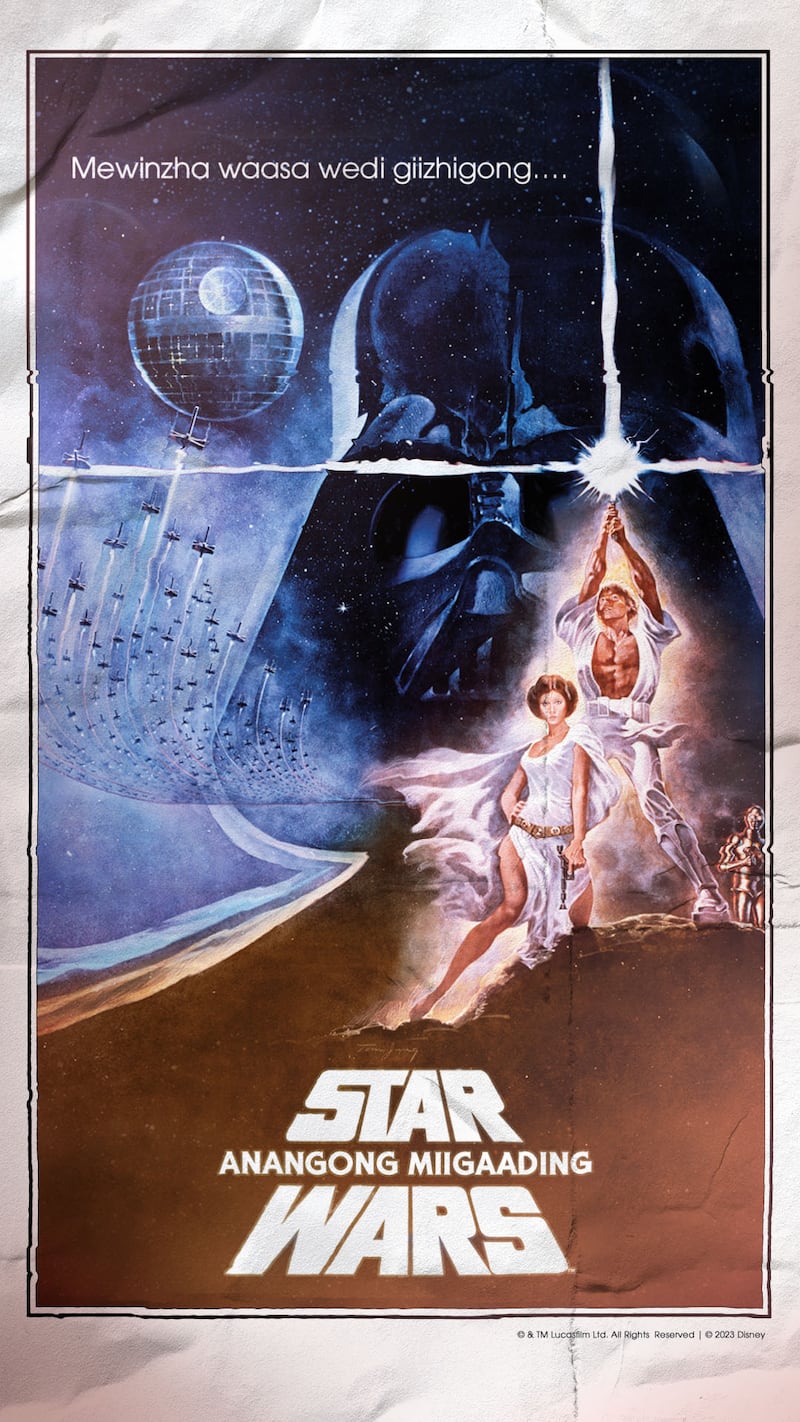North American First Nation speakers of the Anishinaabemowin (Ojibwe) language are celebrating a blockbuster opportunity to use “the Force” to help preserve their language for future generations.
For the first time, Star Wars: A New Hope will be heard in Ojibwe, the language of the most populous indigenous nation in North America, whose homelands stretch across areas of both Canada and the United States.
“My grandchildren will be able to hear this into the future and learn from it, use it,” said Dennis Chartrand, the Ojibwe voice of Darth Vader.
Dakota Ojibway Tribal Council, the University of Manitoba, Disney-Lucasfilm and Canada’s Aboriginal Peoples Television Network (APTN) partnered on the project to bring the Ojibwe version of the 1997 hit film to life.
Aandeg Jedi Muldrew, who voiced Luke Skywalker’s scenes in Ojibwe, said their goal was “to bring the language back out into the world”.
The project brought together a wide range of multigenerational Ojibwe speakers who completed the dub of the film into Ojibwe over a 10 day period in May.
Theresa Eischen, the Ojibwe voice of Princess Leia, said the task involved “breaking down the words, the differences between English and Ojibwe”.

The Ojibwe version of Star Wars: A New Hope will premiere at Centennial Concert Hall in Winnipeg, Manitoba on August 8 (local time).
Starting on August 10, the film will debut in limited release in Winnipeg and other select markets, with Walt Disney Studios Canada collaborating with exhibitors to offer free screenings for the community.
The film will make its debut on Disney+ and APTN at a date to be announced soon.



